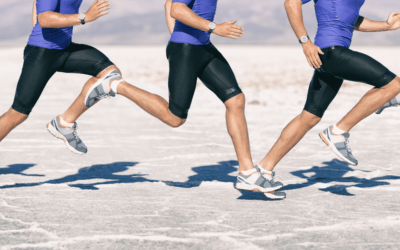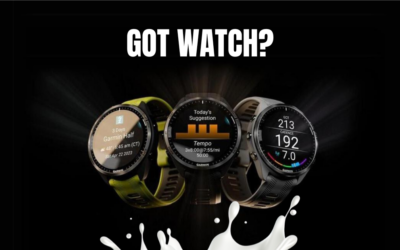You’ve got an amazing coach, and an amazing program.. What could possibly go wrong?
Unexpected delays in adaptations to training or even decrements in performance CAN occur for a variety of reasons – and despite excellent coaching and high-quality programming (i.e. seemingly doing ‘everything right’).
Yes, I said that. You may train and NOT see the benefits you plan for, or actually get worse with training… What?!
How frustrating, and how is this possible, you ask? The answer to that question is more complicated, but anyone can find themselves outside of what we may consider an optimal physiological state of readiness to adapt to training. Sometimes, you may be in an ‘overreached’ state.
Overreaching is a temporary condition that typically occurs in response to heavy training loads (load: volume, intensity and frequency)
- The load exceeds the body’s ability to recover and continue the training as intended.
- Sometimes termed ‘redlining’.
- Performance is not significantly impacted if managed with appropriate rest and regeneration techniques on a micro (weekly) and mesocycle (~4-6 training phase) basis.
However you got there, early detection is key, as is working with your Coach/other to adjust programming (or other ‘loads’) before more long-term training/other challenges set in (e.g. overtraining).
What should you look for?
- Delayed improvements according to ‘plan’/Coach’s expectations, or seemingly getting worse with training, even after de-loading or tapering
- Chronic or slow-healing injuries/soreness; getting sick often
- Difficulty either gaining weight/muscle or inability to lose body fat, muscles feel soft/lacking tone…
- ‘Poor’ recovery between sessions such that sessions repeatedly have to be adjusted
- Disrupted sleep (quality and quantity) and eating/consumption patterns (lack of appetite or increased cravings for sugar, junk food, alcohol etc.)
- Increased ‘cravings’ for reckless or outside of ‘your normal’ pursuits (‘strange’ behavior that does not align with what you typically value)
- Noted disruptions to mood (more irritable/short-fused, anxious, progressing to feeling low, unmotivated, ‘flat’ in affect (sometimes disguised as feeling ‘fine’, ‘doing great’, but clear disconnect between emotional recognition and what is actually taking place in the body because the body has potentially adjusted to its maladapted state)
- Cognitive disruptions (memory issues, lessened focus/inability to concentrate etc.).
Any or a combination of the above can often signal too much accumulating stress hormone (e.g. cortisol) in the body, and progressive desensitization to that stress hormone’s beneficial effects. Left unchecked, this can lead to more pervasive suppression of immune function, increased and more chronic inflammation and risk of injury and illness, suppressed growth hormone levels (among other hormonal imbalances and effects, including reproductive hormones), inability to gain muscle/lose fat, decrements in training adaptations/improvements and learning (including motor learning).
There are stress biomarkers that can confirm overreaching+, but vegetative shifts often precede detection via bloodwork. Please note that:
- 3 consecutive days of disrupted eating, sleeping, mood etc. require rest and recovery, hydration and strong nutritional support to prevent further deleterious effects.
- Without planned recovery overall (weekly, monthly), training adaptations may not occur as intended, and progress overall is slowed.
- Scheduling recovery weekly (full down-time, joy-based time, strong sleep hygiene etc.) is considered as important or more so than the training itself.
Tell your Coach if you are experiencing any of the above – or have been for a very long time. Do not continue to train to no avail… No one wants that! There are fixes, and we are here to help!
Or, reach out HERE if you would like some free advice.

More About The Author
Tara McNeil, MSc, MKin, Performance Physiologist
Tara is an Exercise Physiologist and Performance Advisor with over 25 years of experience in elite sports and exercise science. She has developed training and monitoring programs for athletes across major leagues, including the NHL, CFL, and MLB, and created long-term athlete development frameworks for organizations such as Bobsleigh Skeleton Canada. Tara has also contributed significantly to cardiac rehabilitation research and program development.
Currently pursuing her PhD at the University of Calgary, Tara continues to shape the future of sport science through her work in performance strategy and mentorship. She was selected for the CFL-KPMG ‘Women in Football’ initiative in 2022 and serves as the President of the Board for Bobsleigh Canada Skeleton, focusing on sustainable athlete development and coach education.
References
- Lee EC, Fragala MS, Kavouras SA, Queen RM et. al. Biomarkers in Sports and Exercise: Tracking Health, Performance, and Recovery In Athletes. Journal of Strength and Conditioning Research, 2017; 31(10): 2920–2937.
- Deminice R, Degiovanni GC, Garlipp-Picchi MR et. al. Evolution of oxidative stress biomarkers and relationship to competitive performance in two moments of the swimming training season. Brazilian Journal of Sports Medicine, 2009; 15(4) 277-281.
- Flynn MG, Pizza FX, Boone Jr. JB, Andres FF et. al. Indices of Training Stress During Competitive Running and Swimming Seasons. Int J Sports Med, 1994; 15(1): 21-26.



